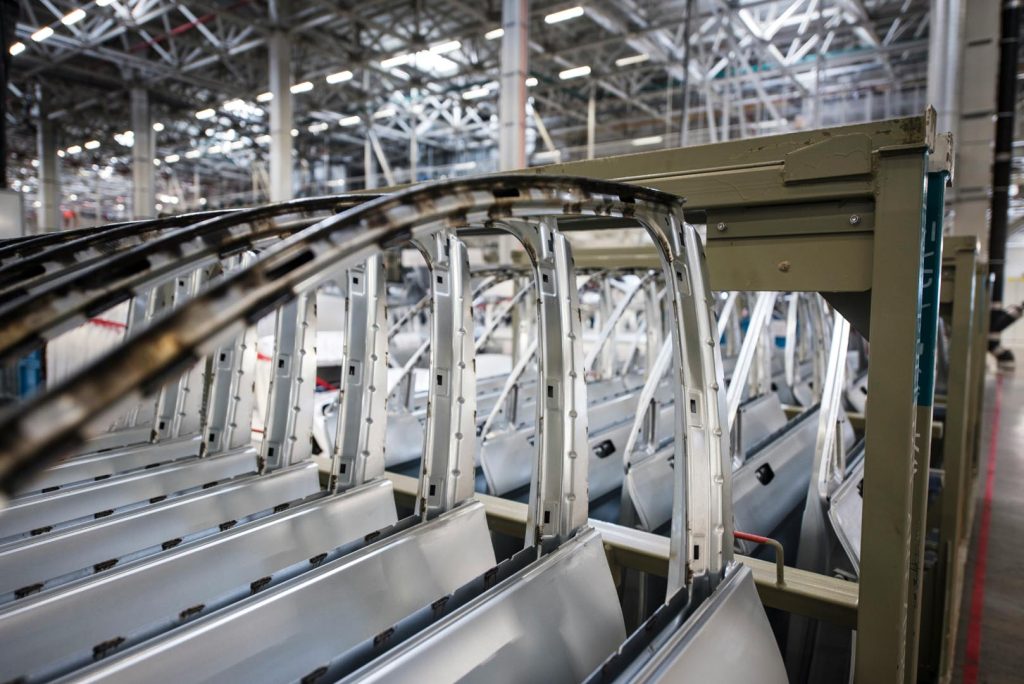Auto Parts
Auto Parts
Here are potential project ideas for enhancing outcomes in an auto parts manufacturing company, addressing operations, efficiency, quality, innovation, and sustainability:

1. Process Optimization and Efficiency Improvement
- Implementing Lean Manufacturing: Apply principles like value stream mapping, 5S, and Kanban to cut waste, boost workflow efficiency, and shorten lead times.
- Automation in Production: Adopt robotics and automation to streamline manufacturing, boost output, and cut labor costs without sacrificing quality.
- Enhanced Supply Chain Integration: Improve collaboration with suppliers and customers to optimize processes, lower inventory, and respond faster to market demands.
2. Quality Management and Continuous Improvement
- Quality Control Systems: Improve systems and processes, including statistical process control (SPC), Six Sigma methodologies, and root cause analysis, to ensure consistent product quality.
- Defect Reduction Initiatives: Implement strategies to prevent defects and take corrective actions to reduce scrap, rework, and warranty claims, improving product reliability and customer satisfaction.
- Kaizen Events: Organize Kaizen events and quality improvement projects to engage employees in identifying and implementing process improvements, fostering a culture of continuous improvement.
3. Product Innovation and R&D
- New Product Development: Invest in R&D to create innovative auto parts with improved performance, durability, and functionality, addressing market trends and customer needs.
- Advanced Materials Research: Explore lightweight alloys, composites, and carbon fiber to enhance fuel efficiency, reduce emissions, and meet regulations.
- Technology Integration: Incorporate sensors, IoT connectivity, and predictive maintenance algorithms into auto parts for real-time monitoring, diagnostics, and maintenance predictions.

4. Sustainability Initiatives and Green Practices
- Energy Efficiency Upgrades: Introduce energy-efficient technologies like LED lighting, efficient equipment, and heat recovery systems to cut energy use and operational costs.
- Waste Reduction Programs: Establish recycling initiatives and waste reduction programs to minimize waste generation, reuse materials, and support circular economy practices, enhancing environmental sustainability and reducing costs.
- Eco-Friendly Materials: Utilize recyclable, biodegradable, and non-toxic materials and coatings sourced from sustainable suppliers, aligning with sustainability objectives and customer preferences.

5. Supplier Collaboration and Strategic Partnerships
- Supplier Development Programs: Partner with key suppliers to enhance quality, reliability, and cost competitiveness through joint process improvements, supplier training, and ongoing performance monitoring.
- Strategic Partnerships: Establish alliances with OEMs, aftermarket distributors, and technology providers to access new markets, broaden product portfolios, and leverage complementary capabilities.
6. Digital Transformation and Industry 4.0
- Smart Factory Implementation: Digitize manufacturing with Industry 4.0 technologies like digital twins, IIoT sensors, and predictive analytics to optimize production and enable data-driven decisions.
- Digital Supply Chain Management: Adopt digital solutions for real-time visibility, collaboration, and optimization across the supply chain, from procurement through distribution.
7. Market Expansion and Customer Engagement
- Global Market Entry: Identify and enter new geographic markets or industry segments with growth potential, using market research, competitive analysis, and strategic market entry strategies.
- Customer Relationship Management (CRM): Improve CRM systems and processes to capture customer feedback, handle inquiries efficiently, and deliver personalized service, enhancing customer loyalty and retention.
- Value-Added Services: Provide technical support, training, and aftermarket solutions to distinguish from competitors and elevate the overall customer experience.
8. Talent Development and Employee Engagement
- Skills Training and Development: Invest in programs to enhance technical skills, problem-solving abilities, and job satisfaction, empowering employees to contribute effectively.
- Employee Recognition Programs: Implement initiatives to recognize and reward high performance, boosting motivation, engagement, and fostering a positive work culture.
- Cross-Functional Collaboration: Promote teamwork and collaboration across departments to drive innovation, share best practices, and solve complex problems together.
By implementing these projects, an auto parts manufacturing company can enhance its operational efficiency, product quality, innovation capabilities, sustainability performance, market competitiveness, and financial results, positioning itself for long-term success and growth in a dynamic industry.